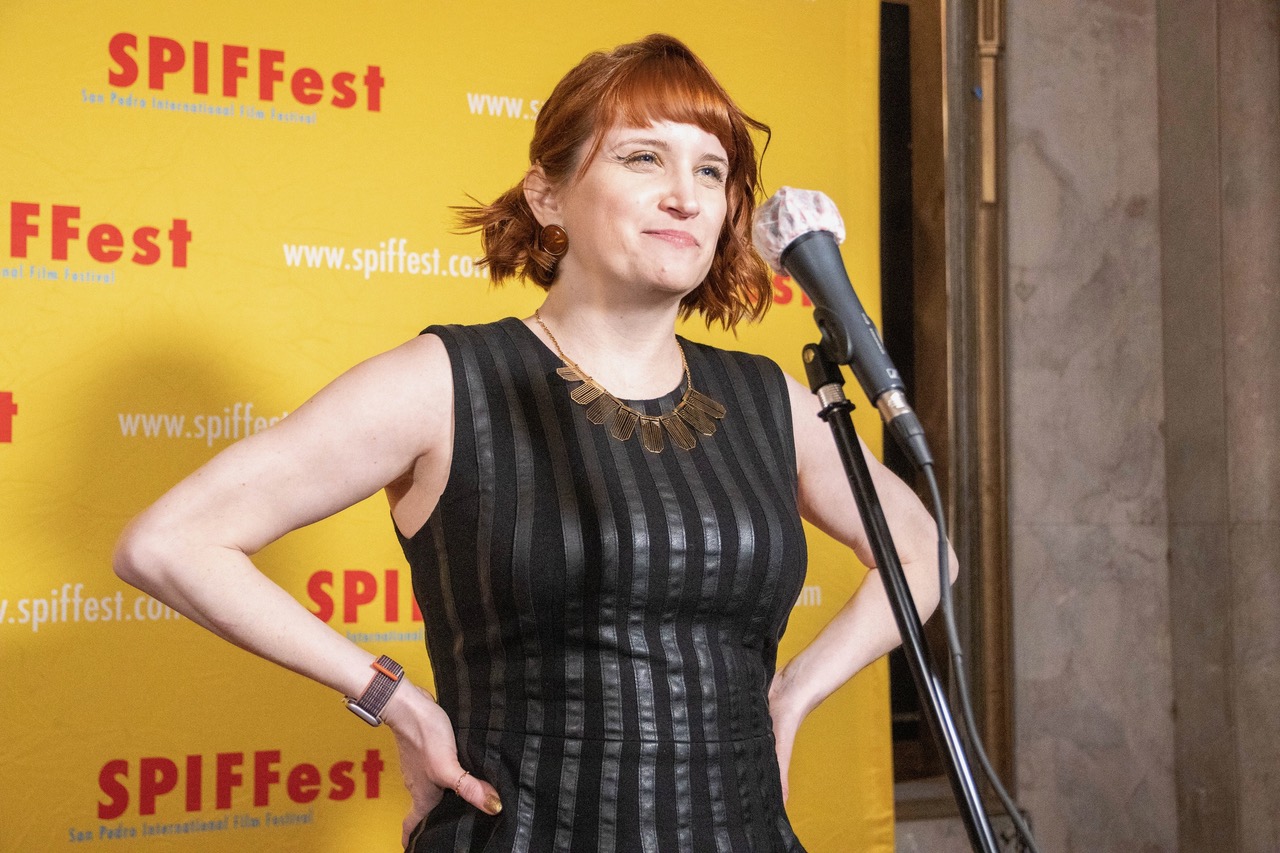They say it’s a mans world. Today I am speaking to a woman that is standing her ground as a director, writer and producer and is fighting for equality not just for women but also for minories. She has a passion and a vision for her creativity to be heared. Here is my q&a with the beautiful and talented Sassy Mohen.
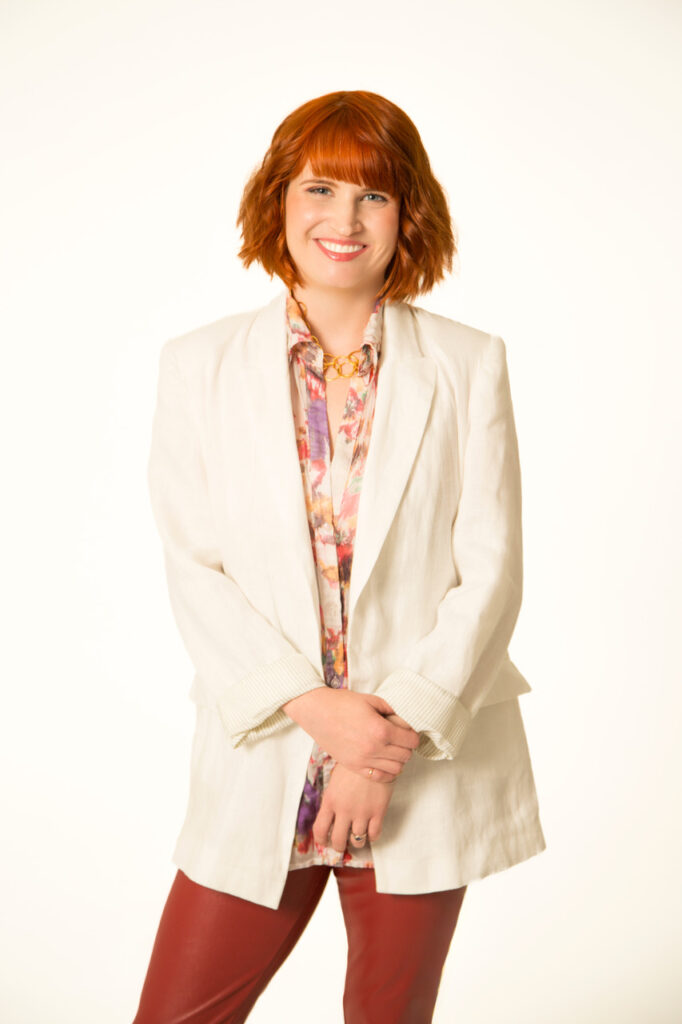
David:
Hello, Sassy; thank you for taking time out to speak with me. I never met anyone with the name Sassy. Did your parents name you Sassy? How did you get the name?
Sassy:
Thank you for having me! I gave myself the name Sassy when I was three years old. My birth name was Sarah Mohen, and I started calling myself Sassy MoMo for whatever reason:) There was no shade on the name Sarah, but I always felt it could have been a better fit; it always felt like I was wearing a pair of pants that were too tight or shoes that were two sizes too big.
I attempted to change my name several times growing up, but the name Sassy always stuck around. Some of my close friends started calling me it when I was younger, and by the time I was 16, most of my friends had called me Sassy. When I moved out to California for college at 17, I decided to change it and haven’t looked back since. After spending the first 18 years of my life feeling utterly uncomfortable with my identity, it is such a relief and blessing to be myself finally.
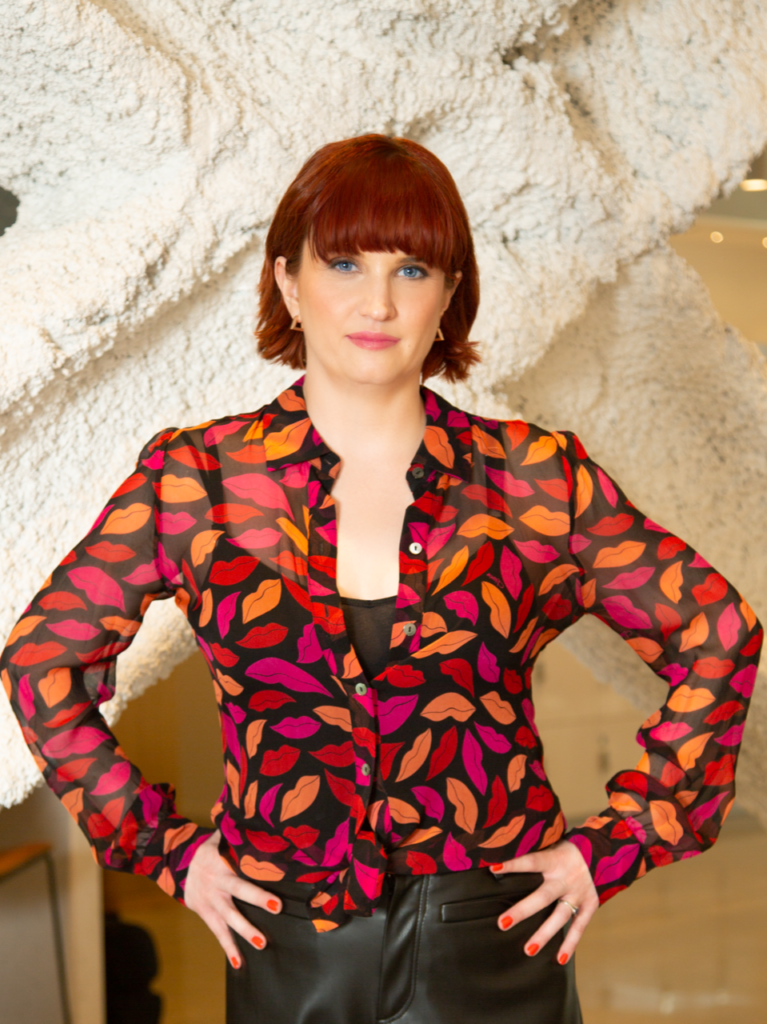
David:
You are a director, writer, and producer. Tell me, what inspired you to get into filmmaking?
Sassy:
It may sound cliche, but just like how I knew my birth name never quite fit, going into filmmaking is something I’ve wanted to do my entire life.
Both of my parents work(ed) in TV & entertainment. Starting in NYC, my father was a recording engineer at Warner Brothers Music, and my mother pursued acting in her 20s. When I was about four years old, we moved down to Washington DC, where my Dad transitioned to broadcast journalism and was assigned to the White House press corp for the Clinton administration, later working as one of the lead audio engineers at CNN for over 20 years. My mother transitioned to archiving for National Geographic, the Discovery Channel, and the Folger Library.
Growing up around all of this media & art was exhilarating, and I can’t remember ever wanting to be anything else other than a film director. I was fortunate to have double the exposure between visiting friends and family in NYC and attending Broadway shows. In DC, going after school and on weekends to the CNN studio and spending my childhood hanging out on the Larry King Live & Crossfire sets, mixed with DC’s substantial theater scene, everything fell into place. I took my first TV production class in the 3rd grade and loved it.
I also went to this fantastic public school, HB Woodlawn, where its entire principle is Verbal Sap Sat, which means to your own self be true, aka, you are responsible for yourself. HB is one of the top public schools in the country because its entire foundation is predicated on allowing students to reach their true potential no matter how unorthodox the method might be. It was a 6-12 school; I let my teachers know that I wanted to be a director immediately, and in 7th grade, they let me Ast. Direct the middle school play; by 9th grade, I was directing my own plays while taking extracurricular classes at the Arlington Career Center in TV & broadcast journalism. My teachers across the board were excellent; I always struggled in math & science because it’s extremely hard for me to think in absolutes (another reason why directing resonates with me,) but many of my teachers let me make movies about the class subjects, allowing me to digest the information still, but in my own way.
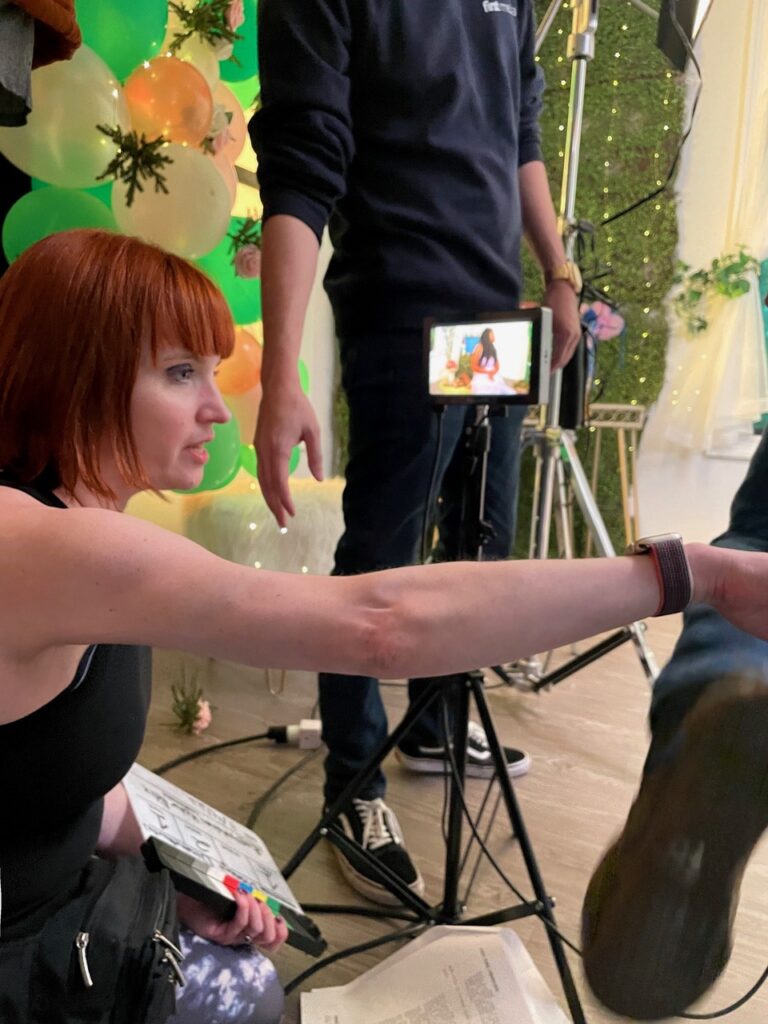
By 16, I made my first “feature film” (which was just me with a camera, a shotgun mic, and a few actors, nothing groundbreaking in the slightest,) and when I applied to colleges, I only applied to film schools in Southern California. Another thing to add: it’s like this was challenging. My family was very lower middle class in terms of economics, and I was learning in a man’s world, but one thing my parents never did was say no. When I told them I wanted to go to a school out of state like Chapman University (where I ended up going) or USC or UCLA, I could tell a tiny part of them went, ‘Oh dear god, how are we going to pay for that’ but they still said, we’ll make it work. Thankfully, I got a hefty scholarship at Chapman, and the rest is history.
David:
Is there a genre you like most when it comes to filmmaking?
Sassy:
Not really; I always love challenging myself with whatever is new and available, and I love trying out new genres. But in a broader sense, all of my films intend to make the world (hopefully) better for women and those often cast aside for not fitting in.
My dream has always been to make films that help women, minorities, and other “outsiders” understand that they are not alone and that they can do whatever they set their minds out to do, no matter what anyone says. Any film or story that helps to prop that idea up, I’m 100% game.
David:
What are the challenges you face as a filmmaker?
Sassy:
Let me tell you, one challenge I am beyond ecstatic that I don’t face anymore is people telling me a film concept of mine is excellent, but no one will watch it because it’s about a woman, so I shouldn’t do it. I just read an article about Sophia Coppola talking about how she got told the same thing before Lost in Translation, and it’s like, Jesus, if the daughter of the director of The Godfather can’t catch a break, then who the hell can? There have been major changes in this industry since the #MeToo movement, but all of those changes still come with significant caveats. Barbie was the highest-grossing film of 2023; it shattered records and was innovative, exhilarating, powerful, and heartfelt: everything a tremendous original film could be.
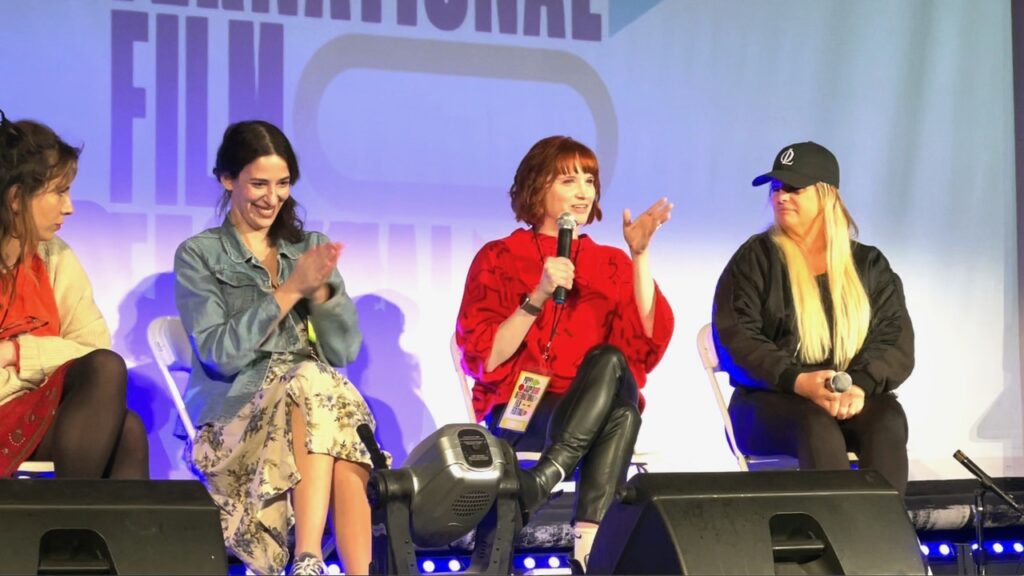
I remember my first industry job interview like it was yesterday. I was barely 18 years old, and through a colleague of my mom’s, I got an interview at this production company up the street from Chapman University. During the interview, I thought it was going great, then suddenly the interviewer, this middle-aged man, started talking about how he would show me around, but his boss (a woman) wouldn’t like my outfit, so he couldn’t. I dressed very conservatively and professionally, all buttoned up with no inappropriate skin showing, but he kept talking about my clothes and how much skin I had showing. Then he started giving me a tour anyway, suddenly stopped in the middle of it, and said he couldn’t continue because of my attire. I left feeling confused, guilty, and sadly ashamed. Somehow, I had blown this interview by just being myself. A few days later, on a Friday at 9 PM, I got a call from the interviewer guy. He told me, “I fought for you, but unfortunately, you didn’t get the position because of your attire. But, I see so much potential in you, and I’d love to share my little black book of contacts to help you out. Why don’t you come over tomorrow night around this time, and I’ll show you.” By now, I understood what was happening and asked, “Why can’t you bring it into the office and I look at it there?” he said something to the effect of, “It’s just so important, it can’t leave my house.” I politely declined the offer, and that was that.
As a woman filmmaker, the challenge is that women must do x5 as much as possible to get the same recognition as men. We’ve come a long way, but much more progress still needs to happen.
David:
Who in the film industry has influenced your work?
Sassy:
My knee-jerk reaction would be the Marx Brothers, but working with them sounded like a nightmare. I don’t muse about specific people as much as I muse about particular stories; for my next feature film, “On the Hook,” which is an ‘abortion-road-trip’ movie set in Texas. I’m in the process of putting together a dream cast. You look at TV shows or films like Friday Night Lights, Before Sunrise, The West Wing, and Little Miss Sunshine; the entire cast is on fire. They are just vibing off each other and creating brilliant work. I want to always work with ensembles like that.
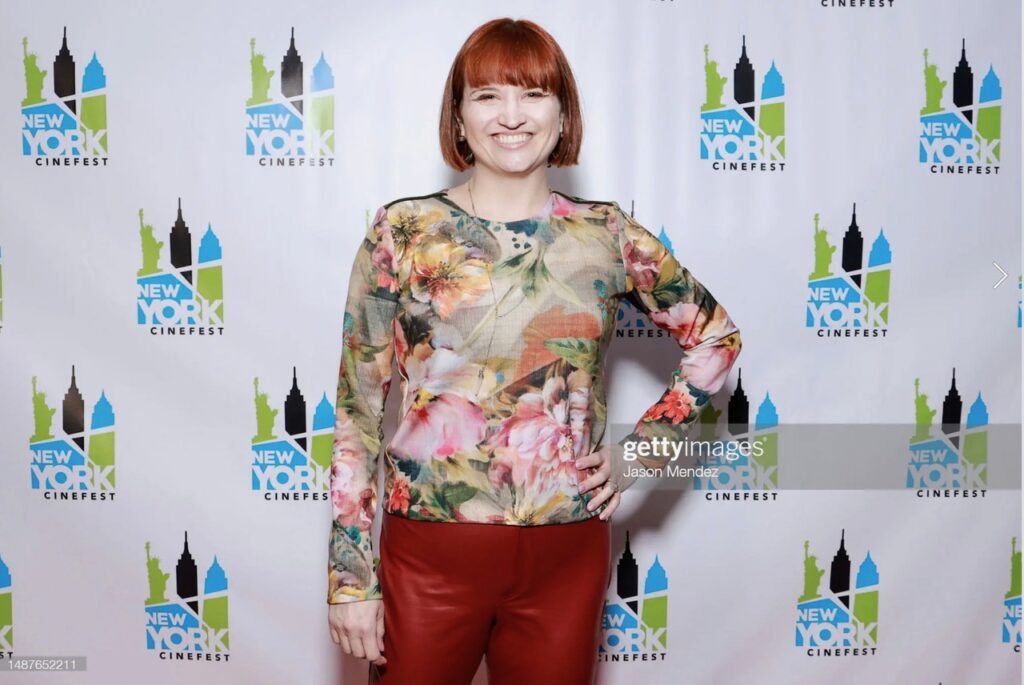
Oh my gosh, so many people! Tom Tykwer’s film “Run Lola Run” was one of the first films I saw, “That’s the type of film I want to make!” I love how he jumps between cartoons, flashbacks, and photos; it’s scattered yet perfectly polished. I also find Greta Gerwig’s & Ava Duvernay’s career paths inspiring. A few others would be The Marx Brothers, Kevin Smith, Julie Delpy, any late 90s/early 2000 indie film, Aaron Sorkin, John Wells, Valerie Faris; I could go on and on!
David:
Hollywood has a history of remaking films and struggles with new ideas. Do you struggle to find original stories that haven’t been done in film?
Sassy:
Great question, and to answer bluntly: hell no! That concept of struggling to find new stories & ideas has always been ridiculous to me. There’s a running joke: in 1899, the government wanted to shut down the U.S. Patent Office because “every invention that could be invented has been invented.” Can you imagine?? Finding a studio that wants to take a chance and finance — that is what is hard.
David:
If you could change one thing in the film industry, what would it be?
Sassy:
I’ll add that we need to be actively recruiting women and minorities. There’s been a brilliant campaign in STEM to recruit more women and minorities to computer science. Like every other industry, it could be better, and women are still not even close to meeting the demographic halfway, but teachers, schools, and companies are working hard to embed the seed in children to go into STEM. We need to be doing that with film & media. We need to be putting out more content about women and minorities and inspiring that demographic to pick up a camera or a keyboard and make more art. If the film industry became more diverse and people of different backgrounds cooperated, we’d have more exciting and unique content, which could also make much more money.
David:
What title do you enjoy most: director, writer, or producer?
Sassy:
Director, hands down. It’s my true passion and what I feel like I was born to do. I’m very grateful for the writing and producing skills I’ve honed. Still, I started screenwriting and producing in high school because no one else was writing scripts or producing the type of films I wanted to make.
For me, the magic of directing always remains the same. I have very clear visions in my head for my projects, whether it’s specific shots, how the music will interplay with a scene, or the emotion I want the audience to feel that might not be obvious when you first read the page. Taking that vision and translating it to the big screen is a painstaking multi-step process involving me and dozens and dozens of talented cast & crew. When that vision plays in a theater, that’s a feeling that never gets old. I’ve always considered the ability to direct a film a privilege that shouldn’t be tossed around lightly or something you do to feel big and important.
Growing up, one of the few escapes I had was going to the movies or watching television, and the majority of the content was about men. When I got a rare, delicious bite of a film about a woman I could relate to, I felt seen, and I felt like my struggles as a young girl and, eventually, a young woman did not struggle to be ashamed of. So much of society programs women to feel less than others, which perpetuates a cycle of accepting 2nd place, for thinking something about you and your body is wrong when that’s only a modern construct that’s not true. I love directing movies because I love to create stories that tell women (and other ostracized members of society) that they are worthy and that it’s okay not to be perfect or to fit some dumb mold. Directing allows me to do that, and nothing makes me happier.
David:
What would you say to your teenage self if you could go back in time?
Sassy:
Haha, it’s funny; I keep getting asked that lately. I would tell my teenage self to trust her instincts and that she is stronger than she thinks. Women (and minorities) are constantly second-guessed and put down. When you’re young, it is straightforward for that stuff to get to you and internalize it. I know I did, and it took me over a decade to trust myself and to believe I was strong enough to fight the good fight. But the funny thing is, I had those traits the entire time; I just never trusted them. The second I started believing in myself, my career became a catapult. If I had leaned into that earlier in life, I probably would have gotten to where I am a lot sooner, but you know what they say: the struggle makes the woman 
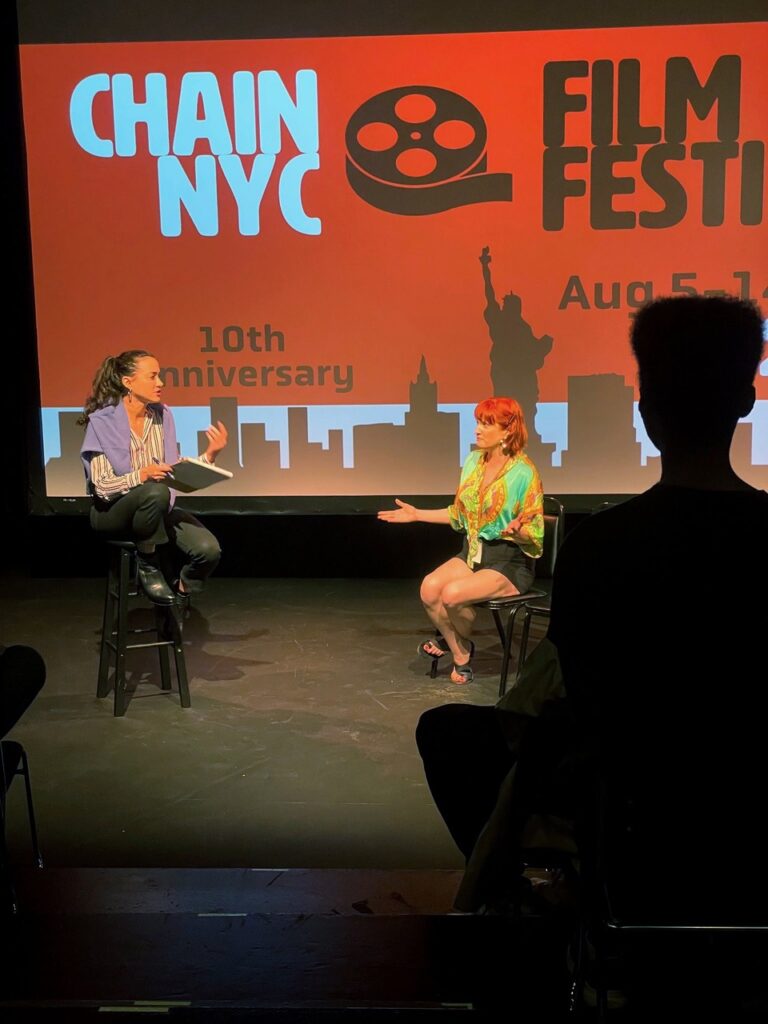
David:
What advice do you have for people struggling to make it in the film industry?
Sassy:
Just keep making content. One thing I’ve found that holds back a lot of people is them being afraid of not making something “spectacular” or “perfect,” or they’re fearful of what people will think. And unless you happen to be Orson Welles re-incarnated, your first film will be far from perfect, and most people will think it’s terrible. That’s just literally anything in life. The first time you try something, it’s going to be wrong. But it’s what you do with that experience, the one after that, and the one after that. Persistence and tenacity will make you a filmmaker who eventually makes something “spectacular.”
Filmmaking is a constant learning process. Even if you only have 5 dollars, make a film with your friends, a cell phone, and a borrowed microphone, and then have the balls to finish it and show it to people. You’ll cringe at shots that you so obviously should have done differently and lines you wrote that are like, “Why the f*ck did I think that sounded normal?” But if you actually finish that film and actively learn from your mistakes, you’ll find getting money, talent, and equipment ten easier than the last time, then again, then again. For my first feature, “Happy Holidays,” which I made when I was 20, we had to practically beg, borrow, and steal to get a budget of $3000 and a crew of 3-10 people (depending on the day.) But we made the film through fundraising online (before Kickstarter) and free equipment donations, craft services, set locations, props & makeup donations. Every single day felt like an epic battle to get that film done.
For my next feature, companies and financiers already want to give me $1-2mil to make it because the script is good, the topic (women’s reproductive rights) is essential, and I’m now a seasoned enough director to take on that exciting challenge. But I never ever would have gotten here if I hadn’t kept making content, even when I had no money to do it. But with each project, I learned something and used that valuable insight to improve the next film. The only way to get somewhere is to get started; it doesn’t matter if you don’t have the money or a talent pool or whatever; do it. If you keep trying and, most importantly, keep learning, you will get there.
David:
Thank you for your time. Do you have any words of wisdom for all the readers?
Sassy:
Vote Blue in November! I promise no politician will ever be perfect, but at the very least, you should vote for the ones who want to keep this country a democracy.
Thank you so much, David! It’s been an honor!

